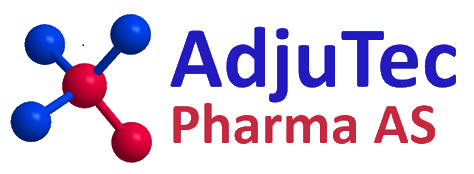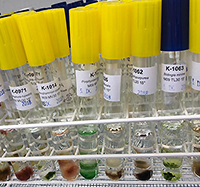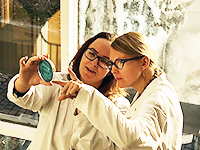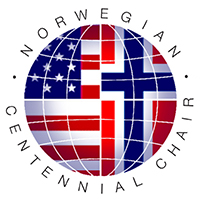The rise of antimicrobial resistance (AMR) threatens to undermine both modern healthcare and agriculture as we know it. AMR development is not an isolated problem of some secluded parts of the planet as we live in a global world and microbes see no barriers. Currently, ~28.000 people die yearly from infections because of lack of treatment options both within Europe and the US. It is estimated that, if allowed to continue unabated, rising levels of AMR will cause an additional 10 million deaths per year and a cost of 100 trillion USD in production loss by 2050. To overcome the threat of a post-antibiotic era, a universal approach is needed where cross-disciplinary, collaborative action is required which includes developments of innovative new antibiotic technologies, preserve existing antibiotics and develop alternatives such as vaccines.
Subprojects
Antimicrobial resistance breaker
MicroPath is happy to collaborate with AdjuTec Pharma AS on a project developing antimicrobial resistance breakers. The project is employing an innovation PhD financed by the Norwegian Research Council.


Optimal use of old drugs (OptiDrug)
Interestingly, although antibiotics has been in use since before the middle over 70 years, little is known about their optimal use, such as treatment lengths, against microbial infections. In this project we aim to investigate the influence of the length antibiotic treatments on the microbiome as well as the development of antibiotic resistance during antimicrobial treatment lengths. For this we use mice and amoxicillin as models.
Collaborations: Prof. emeritus Dag Berild (OsloMet), Prof Fernanda Pedersen and Dr Sudhanshu Shekhar (Faculty of Odontology, UiO)
Funding: UiO.
PROMiSE project and screening for antimicrobial extracts from marine microalgae
 The aim of the project is to combine the use of a comprehensive set of omics methods to exploit the biotechnological potential of marine heterotrophic eukaryotic protists, and to identify relevant enzymes, pathways and compounds with bioactivity. PROMiSE brings together five partners from four countries with considerable experience in the research fields to fullfill its aims. Our part was to screen protist extracts and fraction for antimicrobial activity by analysis of minimum inhibitory concentrations (MIC) and minimal bactericidal (MBC) concentrations, and possibly a set of anti-virulence screens.
The aim of the project is to combine the use of a comprehensive set of omics methods to exploit the biotechnological potential of marine heterotrophic eukaryotic protists, and to identify relevant enzymes, pathways and compounds with bioactivity. PROMiSE brings together five partners from four countries with considerable experience in the research fields to fullfill its aims. Our part was to screen protist extracts and fraction for antimicrobial activity by analysis of minimum inhibitory concentrations (MIC) and minimal bactericidal (MBC) concentrations, and possibly a set of anti-virulence screens.
Collaborations: The consortium includes Prof Tilmann Harder, Alfred Wegener Institute, Helmholtz Zentrum für Polar and Meeresforschung, Bremerhaven, Germany; Dr Ramon Massana, Institute del Mar, CSIC, Barcelona, Spain; Prof Patrick Kelling, University of British Columbia, Vancouver, Canada; Prof Philipe Schmitt-Kopplin, Helmholtz Zentrum, Neuherberg, Germany and Bente Edvardsen, UiO, Oslo, Norway. In addition; Helle Wangensteen, Department of Pharmacy. UIO.
Funding: ERA-net Marine Biotech program.

Screening for antimicrobial compounds
 Our group has set up an interdisciplinary collaboration to discovery of potentially new antimicrobial compounds. We set up screen of various new anti-microbial peptides, old drugs, chemical compounds and i.e. NADES (natural deep eutectic solvents) that we expect might have anti-microbial activity. We use both Minimal Inihibitory Concentration (MIC) assays and Minimal Bacteriocidal Concentrations (MBC) assays. The various compounds are tested against a range of microbial species described in the European Pharmacopeia (the law book within Pharmacy). These include the Gram-positive bacteria Bacillus subtilis and Staphylococcus aureus, the Gram-negative bacteria Escherchicia coli and Pseudomonas aeruginosa, the fungus Candida albicans as well as other relevant microbes.
Our group has set up an interdisciplinary collaboration to discovery of potentially new antimicrobial compounds. We set up screen of various new anti-microbial peptides, old drugs, chemical compounds and i.e. NADES (natural deep eutectic solvents) that we expect might have anti-microbial activity. We use both Minimal Inihibitory Concentration (MIC) assays and Minimal Bacteriocidal Concentrations (MBC) assays. The various compounds are tested against a range of microbial species described in the European Pharmacopeia (the law book within Pharmacy). These include the Gram-positive bacteria Bacillus subtilis and Staphylococcus aureus, the Gram-negative bacteria Escherchicia coli and Pseudomonas aeruginosa, the fungus Candida albicans as well as other relevant microbes.
Collaborations: Prof Hanne Hiorth Tønnesen (Department of Pharmacy, UiO), Helle Wangensteen (Department of Pharmacy, UiO).
Funding: UiO and Research Council of Norway.
Impact of the use of antibiotics in the environment
 Katrine Lekang, a post-doctoral research fellow, in our group attracted funding through the Norwegain Centennial Chair program together with Prof Henning Sørum (Norwegian University of Life Sciences) and Noelle Noyes (University of Mitchigan). The project is entitled “Development of novel metrics and frameworks for quantifying pan-microbial antimicrobial resistance selection pressures within environmental interfaces: aquaculture and the aquatic environment”.
Katrine Lekang, a post-doctoral research fellow, in our group attracted funding through the Norwegain Centennial Chair program together with Prof Henning Sørum (Norwegian University of Life Sciences) and Noelle Noyes (University of Mitchigan). The project is entitled “Development of novel metrics and frameworks for quantifying pan-microbial antimicrobial resistance selection pressures within environmental interfaces: aquaculture and the aquatic environment”.
Check out the following webpages for more information:
https://cbs.umn.edu/norwegian-centennial-chair/opportunities-research
https://cbs.umn.edu/norwegian-centennial-chair/currently-supported-activities